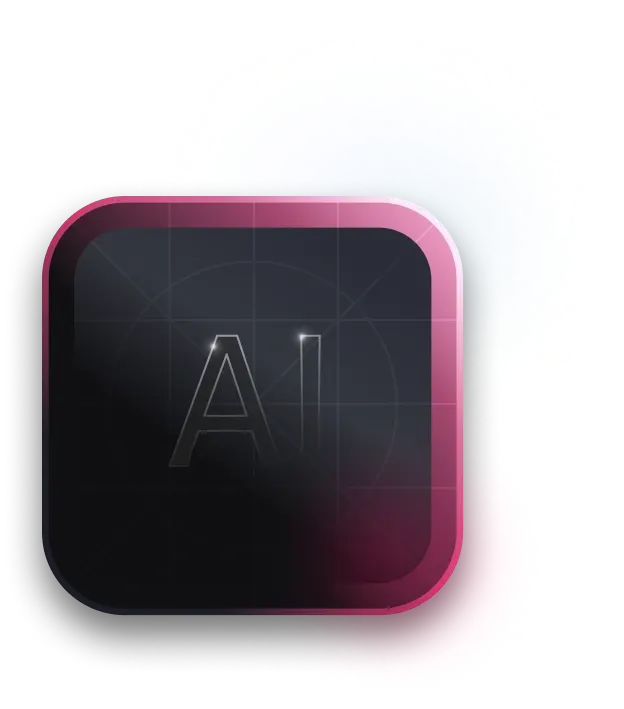Artificial intelligence is more than merely another tech slang. Businesses are increasingly adopting new AI systems, rolling out products with more advanced capabilities by the day.
Artificial intelligence is anticipated to gain a huge market share as organizations increase its use. We studied the latest research, which shows the market for artificial intelligence was valued at $92.8 billion in 2021. This figure is predicted to increase in the next few years, reaching $1129 billion by 2030.
Wider adoption of cloud-based services and greater demand for AI-based virtual help are two major drivers of this amazing growth. Companies are starting to rely on AI to give personalized services to clients, and this trend is expected to continue revolutionizing customer service as we know it.
We can see an especially huge demand for AI in travel. People used to rely on travel agencies to arrange any trip before the advent of booking apps.
Now, you can find all sorts of travel apps in the App Store and Google Play. This allows everyone to download and book their preferred holiday destination with ease. In recent years the sector has expanded in a major way. Countless booking options have become available for travelers, agencies, property owners, and travel corporations while AI steadily improves operations and enhances customer interactions.
According to the UNWTO long-term forecast, the tourism industry is estimated to hit a total value of about 1.8 billion USD by 2030.
It goes without saying, travel and tourism agencies are better equipped to offer top-notch experiences when they are powered by an AI-based travel app. The potential of AI in travel is mind-blowing. Businesses can simplify booking and check-in processes and provide personalized recommendations.
AI dramatically improves the overall travel experience, helping predict travel choices, sort out pre-trip planning, and handle accommodation bookings.
Discover the step-by-step process to create an AI chatbot with ChatGPT API
The Role of AI in Travel Apps
Artificial intelligence is an intriguing topic that connects computer science and large databases. This synergy helps to tackle tons of relevant issues. In huge part due to machine and deep learning. These subfields provide the technologies and approaches for building self-learning systems capable of making predictions and classifications.
AI uses many methods, which is why we decided to compile a list of the major subfields:
- Machine learning. It is a vital part of the advanced technology sector, enabling computers to learn without being instructed, read, carry out, and examine data to deal with real-world issues. For instance, our team employs deep mathematical expertise using machine-readable language to build full-out Machine Learning systems.
- Neural network. To perform more human tasks, AI integrates cognitive science with technology. Neural networks mimic the actions of the human brain. Furthermore, they involve various techniques to indicate the fundamental links between data sets. The network relies on statistical methods such as regression analysis to execute tasks.
- Robotics. Mechanical engineering, electrical engineering, and computer science are all part of it. Robots are utilized to perform jobs that humans find difficult to handle.
- Expert systems. These solutions mimic human decision-making experts, which is accomplished by accessing a knowledge base. Then, the system applies reasoning rules to the user query semantics. In the Google search engine, such solutions suggest spelling and grammatical errors.
- Fuzzy logic. A counterpart to fixed and accurate reasoning, this type of mathematical logic deals with approximate interpretation. To make judgments, fuzzy logic processes and analyzes input from many sources.
- Natural language processing (NLP). By using NLP algorithms, machines can understand and process written data just like humans do. NLP is a way of finding, analyzing, and comprehending text data. The NLP library helps computers to retrieve relevant information from text input.
As a traveler, it is important to understand how AI is changing the way we explore the world. We can plan and book our trips in a few clicks using AI chatbots and virtual travel agents. We can improve our safety by receiving real-time weather updates and security alerts. The impact of AI on travel is undeniable. It has made the entire experience more efficient, enjoyable, and safe.
There are numerous instances of AI use in travel apps. Airlines use AI-based chatbots to assist customers in booking flights and answering queries. For instance, KLM The Royal Dutch Airlines chatbot can reserve a trip, find a holiday location, and help with luggage packing. You can launch it via Facebook Messenger or Google Assistant. The other example is the British Airways Messenger bot which also offers airline recommendations, booking confirmations, and savings on hotels or activities.
Web scraping is another application of AI where bots extract data from websites for analysis. Big Data analysis derives insights from large and complex data sets. For instance, Trivago and Kayak analyze other websites. And Airbnb employs AI and machine learning for customized search results.
Ways to Identify User Needs and Preferences
To develop an AI travel app, our team doubles down on user participation at each stage of design and development. A good AI-powered app helps deliver an outstanding customer experience.
Travel businesses get to boost conversion and profits through automation and personalization of search and booking interactions. And there are many ways to personalize travel content. Like the following ones.
Content-based filtering
Customers provide their preference data upon website registration or previous product purchase. We can tailor product features to a person's unique needs using this data. For example, a solo traveler planning a summer trip might be interested in a hotel with a swimming pool. Alternatively, a strong Wi-Fi connection in your hotel room might be a top priority if you're traveling for business.
Collaborative filtering
This product recommendation approach is based on the data obtained from like-minded users. It suggests products that others with similar tastes and preferences have already liked. This method is particularly helpful for items that don't have clear defining features or where important information is missing.
Our AI and Data Science Case Studies

How to Develop AI-Based Travel App: A Step-by-Step Guide
This step-by-step guide will show how to build an AI app based on the approach of our team.
Step 1: Conceptualization and discovery
When considering the app's functions and processes that leverage AI technology, it is important to outline tangible benefits that will make a real difference in your future user’s life. Clients may anticipate AI-powered support to simplify operations, save time, and boost efficiency.
Once we have identified the problem and idea, we can create product requirements that will help us understand the purpose of the product and find the right technologies and tools to bring it to life. With the right AI technology stack, our team unlocks a world of possibilities to help you achieve the set goals.
During the planning stage, we focus on the following:
- Building a team of experts from various fields, which includes project managers, data engineers, and back-end programmers;
- Investigating the data required to develop an AI/ML model
We know the importance of delivering tailored, personalized apps from the experience. That is why we need a good perception of the target audience. By understanding who the client’s users are, what they want to achieve, and what devices they use, we can create an app that is truly user-friendly and enjoyable to use. This is where timely market research plays a crucial role.
This stage's usual takeaways are:
- Defined business objectives;
- One or two essential MVPs (minimum viable product) characteristics;
- Product roadmap strategy;
- Technology stack
Step 2: Design
The next stage is to create app design prototypes. This involves the design team conducting extensive market studies and mapping user journeys. The development team receives the final layout at the end of this stage.
Importance of user-friendly design
The main thing we prioritize is making the app design user-centered. Our team is thinking in terms of context, user, and the challenge. We incorporate a visual approach to outline the customer journey while analyzing the bigger picture.
When designing visuals for a mobile app that will be displayed in fullscreen, it is important to avoid the outdated idea that one graphic size can fit all devices. Users certainly will be accessing the app from various devices. So you should take the time to create optimized visuals for each device, ensuring that your app looks and functions its best no matter where it runs.
Incorporating AI elements in the design
AI really shines when it comes to situations involving massive amounts of data. From analyzing complex datasets to identifying patterns and trends, the potential for AI in travel to revolutionize the sector is truly exciting to imagine.
Our machine learning specialists and user experience designers collaborate to create a common plan involving data pathways and interface designs to establish a template that grounds the team's product planning in the users' reality.
Step 3: Development
Once we settle on the design and features we must implement, our team moves on to the next stage - development, which consists of two essential stages.
Choosing the right AI technology
The most crucial “pillar” of developing an AI system is the selection of the proper core algorithm. Depending on the nature of self-learning, the algorithm might take several shapes.
Machine learning comes in two main types: supervised and unsupervised. The former involves feeding the machine a dataset to train and produce desired results on a different test dataset.
Supervised learning involves different algorithms, including SVM, Logistic regression, Random Forest Generation, and Naive Bayes Classification. They are useful in predicting the likelihood of a loan defaulting or regression tasks.
In the latter case, the algorithm is used for clustering, i.e., grouping similar things. It may also be used for association (finding linkages between items) and dimensionality reduction (decreasing the number of variables). The key difference between the two approaches is that unsupervised learning does not rely on labeled data to make predictions.
Building the app's core features
After researching the market and understanding what the target user is looking for, we list core app features. We aim to produce straightforward apps that are simple to navigate, easy to use, and tailored to user preferences.
When we develop AI-Based travel apps, we also consider cross-platform compatibility to make a single app run equally well across different OSs. Enabling push notifications and social media integration are also the core features of a successful, up-to-date app.
At Requestum, we prioritize protecting our users' data and preventing fraudulent activity. A security breach could have devastating consequences, so we take every precaution to ensure our apps are secure, such as:
- Encrypted data. The approach is to implement encryption across all functions of your app. It includes encrypting your local database, cache, and API communication. By doing so, we can ensure that your users' information is kept secure and private.
- Authorized APIs. When programming the back end of your application, it is crucial to use well-tried APIs. One’s best bet is to either employ an authorized API or get reliable specialists to build a custom-protected API.
- Strong authentication. It is important to ensure that your smart solution uses cryptographic key management and user session authorization or tokens. This will help to keep your users' data secure and private.
Step 4: Testing
Rigorous testing and quality assurance (QA) are critical to ensuring the app's success. With so much competition in the app development market, thorough QA helps find ways to stand out.
This is where teams set off to identify bugs and make necessary improvements before launching the app in public.
We always keep the following points in mind while testing:
- Front-end vs. back-end functionality. Does the mobile app offer sufficient frontend functionality to tackle relevant user pains? And does the app perform as expected on the back end?
- Compatibility. Is it compatible with an appropriate operating system (Android, iOS, or both)? We always check compatibility with multiple operating system versions (for example, Android 7.0 versus Android 10.0).
- App integration. When the core functions interact with other device features, does everything work as it should, conflict-free?
Step 5: Deployment and maintenance
Now that all components are ready, we can test the viability of our solution. For this, the project’s early implementations usually begin with a Minimum Viable Product (MVP). This early version of the app includes only the essential features necessary to test the application among real users.
By gathering feedback from these users, we can refine and improve the solution to create a full-fledged application that meets the TA’s needs to the fullest. The MVP approach allows specialists to quickly iterate and make improvements based on user feedback, ensuring that we ultimately deliver a high-quality product that really hits the spot.
Let’s collaborate to create software that works for you
Launching the App
Finally, the app is ready for launch. Normally, our clients request us to create an application for either Google Play Store or Apple Store. In such a case, our team concentrates on unraveling the powers of a certain platform to the max. However, this can greatly limit the app’s reach. This is why we recommend creating a cross-platform app that offers strong visibility and the possibility for additional consumers.
Continuous Improvement
It is important to note that AI maintenance differs from other applications, as it requires constant updates to both data and concepts. Your algorithm accuracy must remain consistent and not degrade over time. At Requestum, the maintenance plan also includes regular updates such as security patches and version improvements.
After launching the app, it is important to keep receiving feedback and continue improving. One method is to use analytics. By studying customer behavior, you can identify areas where modifications might be necessary. This insight can also help to change the app before it is officially released.
Conclusion
Traveling is one of the most rapidly expanding business sectors heavily driven by technology, particularly Artificial Intelligence. AI in travel automates, facilitates, and streamlines tons of unnecessarily manual operations, cutting both the specialist burden and human error occurrences. It harnesses the benefits of smart technology to forecast travel decisions, create personalized travel solutions matched to client demands, and improve customer service. And for tourists, AI makes the entire travel experience easier and more pleasant for clients.
It can be a daunting task to develop an AI travel app. It requires a thorough comprehension of the field and a vast amount of expertise. While this article may offer a comprehensive guide, it is essential to have reputable specialists handling your new solution.
At Requestum, we specialize in end-to-end AI development of apps for the travel industry and beyond. Contact us to discuss your next top-level AI solution.

Our team is dedicated to delivering high-quality services and achieving results that exceed clients' expectations. Let’s discuss how we can help your business succeed.



SHARE: